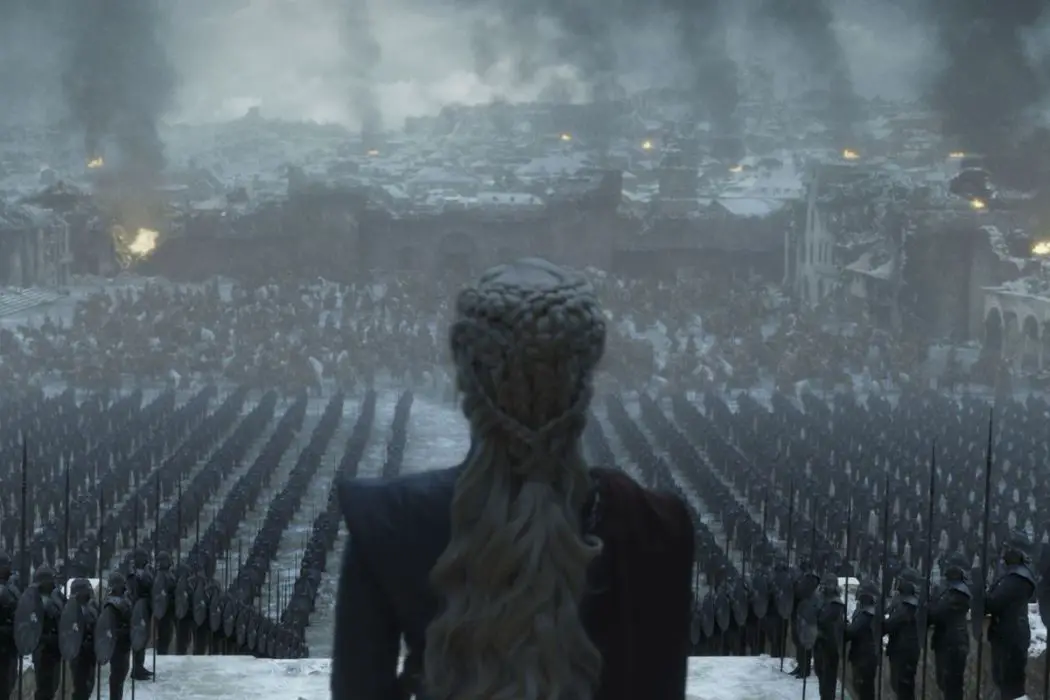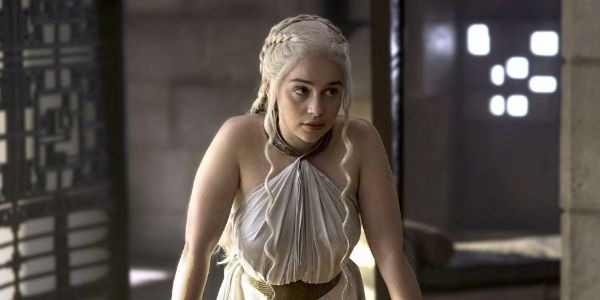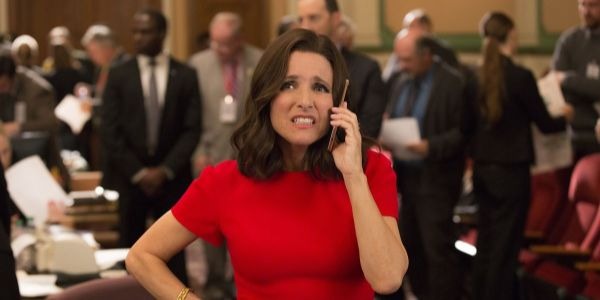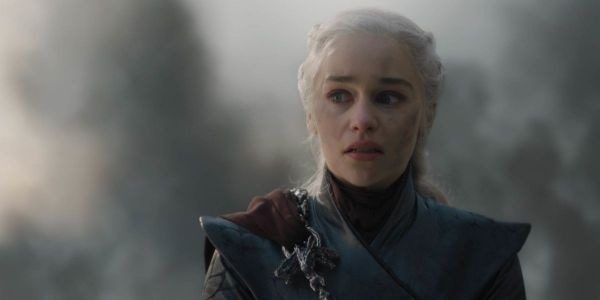On The Endings Of VEEP & GAME OF THRONES: How To End A TV Show In Glory

Rahul is a 3rd year Economics student at LSE but…
Veep and Game of Thrones had a lot in common. Both were long-running, highly acclaimed HBO shows which gave their final bow in May of this year. Given the premium network’s considerable campaigning clout, both have also become the shows to beat at the Emmy Awards in their respective comedy and drama categories.
Something they didn’t have in common, however, was the extent to which they truly understood their lead female characters. Selina Meyer (Julia Louis-Dreyfus) was unwaveringly rotten to the core. The creators were able to have their cake and eat it because viewers still rooted for Selina despite her notoriety. Daenerys Targaryen’s (Emilia Clarke) trajectory was more chequered, showing signs of compassionate maturity one day and destructive rage the next. This made her a far more divisive hero than intended.

Such successes and failures in defining a character do not go unnoticed. Why one show’s conclusion was hailed as a triumph whilst the other’s was as derided can be, at least partially, attributed to how deserving the characters were of the endings they ultimately received.
Two women, both alike in ferocity
Despite visual disparity, both Veep and Game of Thrones were stories of political intrigue that focused on the types of people who hungered for power. The final seasons of the two shows were about women fighting to claim the highest office in the land, and around whom varyingly incompetent and cunning advisors orbited. Given that Daenerys was painted as a hero for much of Thrones’ run, it can only be perceived as a miscalculation that her character was so similar to Veep’s Selina.
I was born to rule the Seven Kingdoms, and I will.
I should be president because it is my goddamn turn!
The commonalities between Daenerys and Selina stretch beyond their stylish couture. Their advisors played significant roles in preventing both women making rash and disastrous decisions. Both were focused, goal-oriented individuals who had little regard for the means by which they would attain their desires. And both believed it was their birthright to achieve their highest ambitions – an unattractive trait for any prospective leader.
But only Selina knew what she truly wanted. Highest on the list of her goals were popularity, a legacy and the presidency. She was prepared to achieve these by any means necessary. With illegally acquired information, in she publicly outed an HIV-positive child. In season six, she was willing to accept multi-million-dollar bribes in return for rigging the Georgian presidential election. Entirely self-interested, the value of public service was lost on her. Extraordinarily comedic scenarios and dialogue were derived from the exploration of the outer edges of Selina’s monstrosity. This was, of course, a deliberate caricature of an unscrupulous politician. But we understood her merely as a crooked cog in a broken machine.

Daenerys was far less certain of her desires. Alternatively, the writers didn’t take the time to fully consider what they wanted from her. What made the Dragon Queen such a divisive figure amongst Game of Thrones fans was her incomprehensibly fickle attitude towards the means by which she would achieve her goals. She was simultaneously painted as both an ascending hero and an emerging villain. Two extremes of a binary does not constitute moral ambiguity.
Plenty of contradictions existed in Daenerys’ dialogue, especially in regard to her optically unfortunate campaign to abolish slavery and her craving to return cities to the dirt. This suggests a poorly thought-out character. A cursory comparison to George RR Martin’s Daenerys – who suffered a continual internal conflict between ruling benevolently and conquering violently – easily proves this. It is ironic how similar Selina and Daenerys were considering the former was exactly the sort of politician the latter sought to topple.
The faults of dichotomous characterisation
Early in season seven, Selina was preparing a speech in a hotel room. She ranted about why she deserved to be the president but immediately discarded her notes because “I sound like I’m shouting from a balcony in Munich.” This reference to Nazi Germany remains relevant to Game of Thrones: the images evoked when Daenerys screeches of victory and conquest to her soldiers in the ruined Red Keep are no accident.
We will not lay down our spears until we have liberated all the people of the world! … Will you break the wheel with me?
I was the game-changer. I took a dump on the glass ceiling, and I shaved my muff in the sink of the old boys’ club!
“Madness and greatness are two sides of the same coin. Every time a new Targaryen is born, the gods toss the coin in the air and the world holds its breath to see how it will land.” Plucked from Martin’s ‘A Storm of Swords’, this metaphor is also uttered by both Varys and Cersei in the show. During the eight seasons, the coin was constantly spinning in the air, but in the penultimate episode it finally landed madness-side up. Perched atop Drogon, with King’s Landing ready to submit to her conquest, Daenerys could not help but to cave to her infamous Targaryen tendencies. She razed the capital and her war crimes were unforgivable.
A more satisfying and deserving ending would have been to not have the coin land at all. Without her claim to the Iron Throne, nor the friends who helped her get to Westeros, Daenerys should have known that her time was up. Greatness, in a benevolent sense, was out of her grasp. Had she conceded that ruling Westeros was no longer her destiny, she could have defeated one last oppressor in Cersei before bowing out. This would have spoken to the strength of her character and her priorities in leading the common people to prosperity.
But in the interest of shock value and needlessly circumventing classical hero tropes, Daenerys was written to lose control. With a good reason to kill her off, the writers had lazily cleared an obstacle to tying up the series.

The Veep writing team knew Selina’s coin only had a single side: madness. And they were true to her nature until the very end. In the final season of Veep, Selina evolved into a mad queen of sorts herself. She used her mixed race grandson as a campaigning prop (referred to “Lion Kinging him around”), allowed the Chinese government to fund her campaign and suppress Black voting in South Carolina, tried to implicate a staff member for her ex-husband’s financial crimes and made a secret deal to return Tibet to China after freeing the small state just two seasons prior. That was all before promising to ban gay marriage (despite having a lesbian daughter) and selling her soul one last time by offering the despicable Jonah Ryan the vice-presidency.
In contrast to Daenerys, Selina succeeded in her aims. She secured the party’s nomination and eventually won the presidential election, returning her to the White House. But hers was a pyrrhic victory because she sacrificed everyone and everything to win. Julia Louis-Dreyfus and director David Mandel excellently composed Selina’s final onscreen moment. The sight of her all alone in the Oval Office was heart-breaking. Evoking sympathy for the devil was one of the finale’s finest feats. This is exactly the poignant tone Thrones should have aimed to strike with Daenerys’ ending.
Lessons to be learnt
Veep was victorious whilst Game of Thrones prompted a petition with over 1.5 million signatories demanding the eighth season be remade with “competent writers”. Writers are not accountable to fans’ wishes but they do have a responsibility to their characters to craft a deserving and comprehensible conclusion.
Many aspects of the final two seasons of Thrones seemed rushed and therefore it comes as no surprise that viewers felt short-changed. The Thrones writers’ obsession with the binary coin refuses the ability to portray moral ambiguity – an attribute which distinguished Game of Thrones’ earlier seasons from other fantasy epics.
Each character ought to exist on some plane of reality for viewers. Coherence is essential to being convincing. Those working on Veep really understood what they wanted to say with Selina’s arc and the heavy price that comes with pursuing power. The Game of Thrones writers, however, completely forgot that Daenerys was a character that meant something to a lot of people – evident in the number of children named after her. As both shows enter the awards season for the last time, hopefully the various triumphs and failures can be lessons to anyone else trying to successfully conclude a story with grace.
Do you agree with me? How important is it to do a character justice when concluding a show? Please share your thoughts in the comments!
Does content like this matter to you?
Become a Member and support film journalism. Unlock access to all of Film Inquiry`s great articles. Join a community of like-minded readers who are passionate about cinema - get access to our private members Network, give back to independent filmmakers, and more.
Rahul is a 3rd year Economics student at LSE but he's proficient only in binge-watching TV. He thought he should start writing about Film and TV because who wouldn't want to know his opinion? You can find his full writing and design portfolios here: https://www.rahul-reviews.com/













